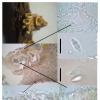
03-02-2026 20:44
Zetti MarioWhen I first saw this white mould on an Agaricus s

18-08-2025 15:07
 Lothar Krieglsteiner
Lothar Krieglsteiner
.. 20.7.25, in subarctic habital. The liverwort i

02-02-2026 21:46
Margot en Geert VullingsOn a barkless poplar branch, we found hairy discs

02-02-2026 14:55
 Andgelo Mombert
Andgelo Mombert
Bonjour,Sur thalle de Lobaria pulmonaria.Conidiome

02-02-2026 14:33
 Andgelo Mombert
Andgelo Mombert
Bonjour,Sur le thalle de Peltigera praetextata, ne

31-01-2026 10:22
 Michel Hairaud
Michel Hairaud
Bonjour, Cette hypocreale parasite en nombre les

02-02-2026 09:29
 Bernard CLESSE
Bernard CLESSE
Bonjour à toutes et tous,Pour cette récolte de 2

01-02-2026 19:29
 Nicolas Suberbielle
Nicolas Suberbielle
Bonjour, Marie-Rose D'Angelo (Société Mycologiq

31-01-2026 09:17
 Marc Detollenaere
Marc Detollenaere
Dear Forum,On decorticated wood of Castanea,I foun
Stromatic cupulate coelomycete from Belize
Joanne Taylor,
07-09-2017 00:57
An interesting stromatic cupulate coelomycete was collected in Belize. it was growing on a seedling tree, on the stem and whether it was pathogenic or not, was unlcear. The description is below. It is very distinctive so surely must be described?
Creamy white stroma on host tissue (approximately 5mm), unclear whether it is bursting out of cuticle or superficial. Forming several cupulate conidiomata, often with stromatic short fat finger like projections.
In section hymenium can be convoluted and folded while appearing flat from above, orange coloured. The excipulum consists of textura intricata cells which are hyaline, thick walled with a narrow lumen, have crystalline encrustations and vary little from the stromatic tissue except in the upper margin where they are appear in a clear matrix.
The conidiogenous cells line the hymenium and are densely packed in some sort of matrix and will not separate even after treatment with 10% KOH. Conidiophores cylindrical/filiform, branched? or not, producing cylindrical filiform conidiogenous cells with small collarettes and are possibly percurrent with annelations.
Conidia are hyaline, fusiform with a truncate base and an apiculate apex, three septate with a germslit particularly visible in KOH (9-10 x 3 um).

